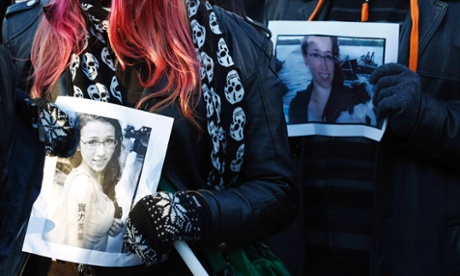Welcome
....to JusticeGhana Group

JusticeGhana is a Non-Governmental [and-not-for- profit] Organization (NGO) with a strong belief in Justice, Security and Progress....” More Details
Why don’t sentences for accused sex offenders teach them to treat women like people?
- Details
- Parent Category: Africa and The World
- Category: Law & Justice
- Created on Monday, 19 January 2015 00:00
- Hits: 6846
 Why don’t sentences for accused sex offenders teach them to treat women like people?
Why don’t sentences for accused sex offenders teach them to treat women like people?
Our current legal system discourages people from taking full responsibility for their actions and their consequences
Victoria Law
In November 2011, a group of young men allegedly raped a very drunk fifteen-year-old, snapped a photo, and circulated it, kicking off bullying that preceeded the girl’s suicide. On Thursday, one of them was sentenced to twelve months of probation and a mental health assessment. Whether or not this was an appropriate sentence – he was not on trial for rape, but for distributing a nude photo of a teenager – it’s not sufficient to make this young man take responsibility for what he did, or to discourage a repeat performance. Why don’t sentences for accused sex offenders teach them to treat women like people?
In 2011, 15-year-old Rehtaeh Parsons attended a small party, she drank too much and began vomiting. While she was incapacitated, four boys allegedly assaulted her. One boy took a picture of another giving a thumbs-up sign while allegedly raping her as she vomited, and the boys circulated the photo around their high school. Instead of being horrified at the boys’ actions, Parsons’s classmates began bullying her and calling her a slut. Outside of school, strangers texted her and messaged her on Facebook asking for sex – after all, they said, she had already had sex with their friends.
After a year-long investigation, police refused to press sexual assault charges. Meanwhile, the bullying continued. After enduring 17 months of harassment, Parsons attempted suicide and, three days later on 7 April 2013, she died after being taken off life support.
The case was then reopened – not for rape but for child pornography. The photographer, who had turned twenty by then, pled guilty; he was sentenced to one year ofprobation and has to register in Canada’s national sex offender DNA database. The boy photographed with Parsons, now nineteen, pled guilty to distributing child pornography and was sentenced on Thursday.
From the statements made during sentencing, it’s clear that our current legal system discourages people from taking full responsibility for their actions and their consequences. In an attempt to procure a more lenient sentence, the defense attorney described his client, who allegedly raped Parsons, as a victim, saying that he was bullied and forced to leave school after her suicide. He also stated that his client had already apologized to Parsons after the picture began circulating and therefore shouldn’t be held responsible for her suicide.
Maybe he did apologize. But did the boy stand up for Parsons after the picture was circulated? Did he publicly defend her when people called her a slut? Or did he think that, because he said “I’m sorry”, he was no longer culpable for the consequences of his actions? And does he actually understand what he did wrong?
Since Parsons’s suicide, the man has reportedly taken courses on drug abuse and on stress and anger management. But none of these address the root causes of why he and his friends thought it was acceptable to allegedly gang rape a girl so drunk that she was vomiting, or take pictures during that act and circulate them. None of these courses examine the widely-held belief that women are, in the words of his sentencing judge, “props for [male] enjoyment”. They may teach this young man to abstain from drugs and control his anger, but will they teach him that women’s bodies should be inviolable? Will they teach him about consent? What happens when he’s at another party where a woman is drunk and vulnerable? Perhaps the experience of being arrested will deter him from taking advantage of another woman, but will he make sure that no one else does? Or will he shrug his shoulders and ignore her vulnerability?
Parsons’s father, Glen Canning notes that other men enable rape. “Rapists rely on other men to excuse and justify their crimes against women,” he wrote in The Huffington Post less than a year after his daughter’s death. “Other men who’ll laugh at their jokes, invite them to parties, play sports with them, introduce them to other women. Men who’ll give them jobs, feed them, and help them blame their victims even if it’s by indifference.”
Our current court system, whether in the United States or in Canada, feeds that indifference. The court system does not force people to question why they believed rape or other forms of harm are justifiable. It discourages people from taking full responsibility for their actions and from examining their underlying beliefs. Instead, defendants are pressured into denying all responsibility or, as we saw in Thursday’s sentencing, minimizing their culpability.
The sentencing judge said in his statement that no sanction he could impose would restore Parsons’s dignity. That may be true, but he could have required that the young man enroll in programs that challenge him to understand the full consequences of his actions and to ensure that he – and the other men in his life –never do so again. But that’s not the way our current legal system works.
Instead, this man will serve his twelve months of probation and, after five years, have his criminal record sealed. He’ll be free to live his life without ever asking himself why he and his friends thought what they did to Rehtaeh Parsons was ever acceptable.
Source: The Guardian UK, 16 January 2015




